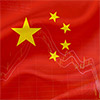Evolving Markets
Japan Equity Monthly - January 2021
We discuss Japan’s robust manufacturing sector and why it is not about reclaiming the past; we also take a look at the BOJ’s ETF purchases amid the current rally by equities.
Japan Equity Monthly - December 2020
We look into the potential economic impact of Japan’s attempt to become carbon neutral. We also analyse why Japan’s fiscal condition draws little attention although the country is on course to spend a record amount in its upcoming budget.
Global Strategy Thoughts for 2021
US capitalism was built on large societal divisions, but sometimes such becomes intolerable and the majority of the population revolts. In this case, the virus accentuated the income divide and engendered even greater angst. However, during the past four years, the majority fought back in different ways and ended up fighting each other, while the wealthy prospered more than ever, with high-skill workers reaping gains while lower-skill workers struggled and were often displaced, especially after the virus.
2021 Global Credit Outlook
The last 12 months have seen a significant rotation of topics discussed at investment meetings worldwide. The agenda has moved from macroeconomic data to infection rates, hospitalization rates, vaccinations and other issues related to the COVID-19 pandemic.
Investing for the Long Term: 'Future Quality' Companies
The Nikko Asset Management Global Equity team philosophy is based on the belief that investing in ‘Future Quality’ companies will lead to outperformance over the long term. This paper draws on academic evidence to outline the three fundamental concepts which underpin our definition of ‘Future Quality’ investments.
ESG in the investment process
Wealthy individuals across generations are interested in investing for environmental or social impact, but Millennials are by far the most active in evaluating and indeed, demanding these strategies.
Japan Equity Monthly - November 2020
The Japanese equity market has posted impressive gains as 2020 draws to a close, with the Nikkei Stock Average reaching a near three-decade high, and we assess the rise from a long-term perspective. We also analyse how Japanese equities have managed to defy a stronger yen.
China’s bond market: a space to watch
As China’s fixed income market continues to grow in depth and size, it has helped create interesting trends that are worth following. While some of these trends are not new, we do see finer developments within that could pique investor interest in realising additional alpha.
Bad Ideas Report
Today, we believe the global economy is undergoing the largest technological transformation in history. Disruptive innovation should displace industry incumbents, increase efficiencies, and gain majority market share. As technologies emerge and transform entire industries, investors in traditional benchmarks may face more risk than historically has been the case.












